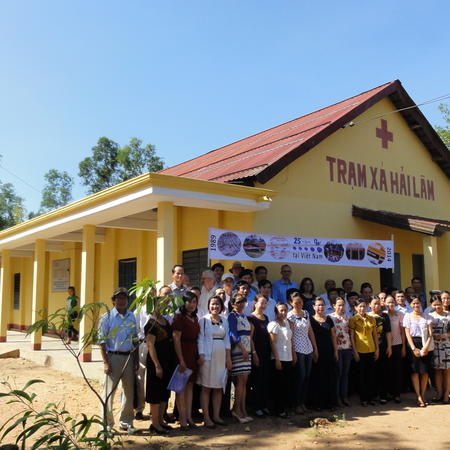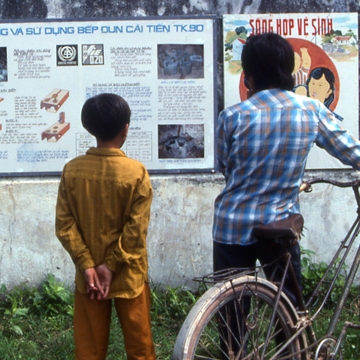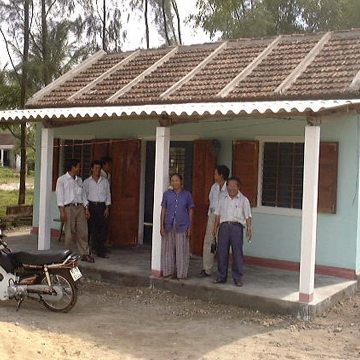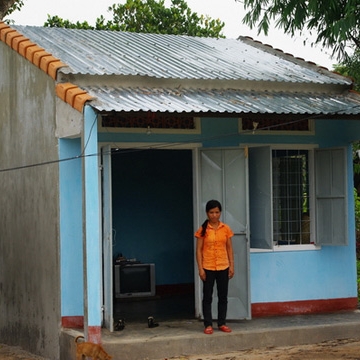- English
- Français
- Tiếng Việt
The woodless construction programme in Burkina Faso
DW has been working in West Afica since 1980 and today is also a locally registered NGO in Burkina Faso as DWBF, and has been active in Burkina Faso since 1995.
In the countries of the Sahel, DW has promoted the development of sustainable housing and human establishments based on respect for existing values and on the availability of human, material and financial resources which are fundamental to a durable approach and to good management of the natural resources of the region. Needs and the availability of resources of the countries of West Africa are changing rapidly. Systems which have proved their viability over the course of centuries are often unable today to meet current needs or to match the resources that are now available. It is in this context that DWF promotes sustainable approaches for a form of development which can serve the people as part of a changing process.
In the Sahel, promoting “woodless construction’ has been the main focus of DW’s activities since 1980, and in Burkina Faso since 1995. The term “woodless construction” designates techniques originating in Egypt and in Iran which enable one to build roofs for traditional housing without using wood, excessive timber consumption being a major factor in the destruction of the forests of the region and in accelerating desertification. Around this activity, DW develops the building skills of young people and generates employment, supports the activities of female potters, develops structures for economic activities and encourages local income generation helping to break the rural exodus. The promotion of woodless construction in Niger, in Mali and in Burkina Faso was been recognised by the World Habitat Award in 1998. See Awards
DW works in close collaboration with the inhabitants of towns and villages in the region, with local authorities and with other NGO partners for the realisation of school and administrative buildings.
DW’s actions in Burkina Faso
Main objective
To establish a capacity to meeting housing, environmental and the needs of administrative decentralisation, all based on the use of locally available human and physical resources.
Development objectives
- To contribute to the development of the local economy and to poverty reduction;
- To reduce the pressure on the natural environment;
- To enhance local capacity to meet housing needs in a changing environment;
- To support the process of decentralisation through the use of local human and material resources;
- To develop practical skills in the field of housing, and notably woodless construction and related techniques;
- To develop an institutional framework to ensure the economic and operational efficiency of the persons trained.
DW’s actions are based on :
A response to requests for support and training coming from the villages and departments of the northern provinces of Burkina Faso.
Public workshops held with communities to identify shelter, environment problems and social needs that can be met by developing local skills and the use of local material and human resources
The offer of training programmes and support to people chosen by the participants during the workshops.
- Training in woodless construction skills for novice builders and technicians;
- Training and assistant to women’s groups particularly related to the production of ceramic products used in and on houses, including improving quality and reducing fuel consumption;
- Training for the setting up of economic interest groups to help trained people organise themselves for work.
- Technical assistant to provincial services;
- Collaboration with local authorities in the process of administrative decentralisation, helping develop infrastructure suing local skills developed by DW.











